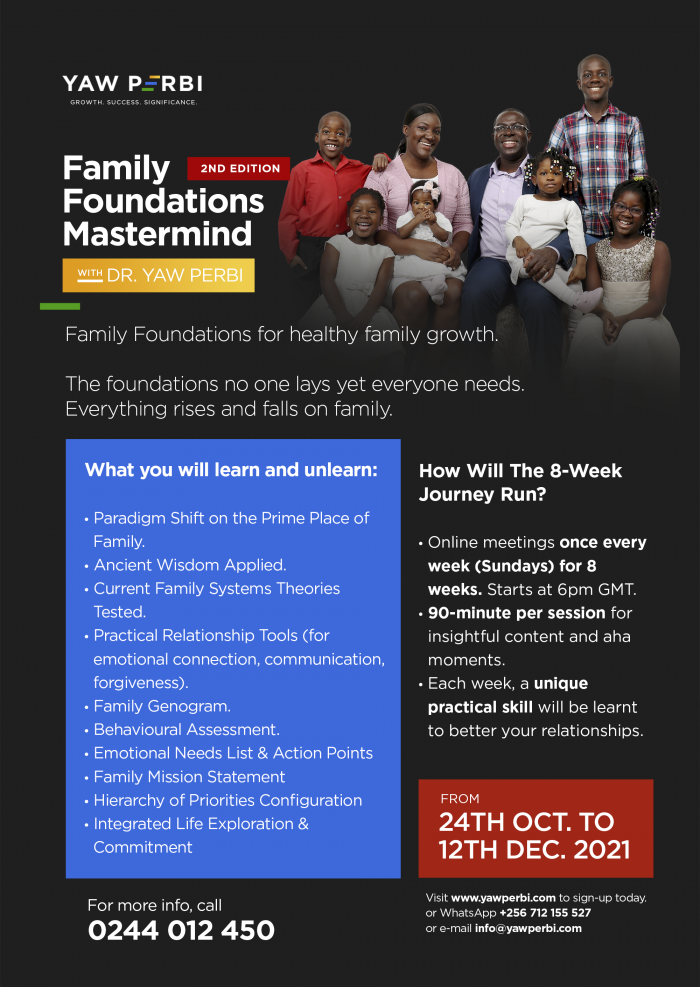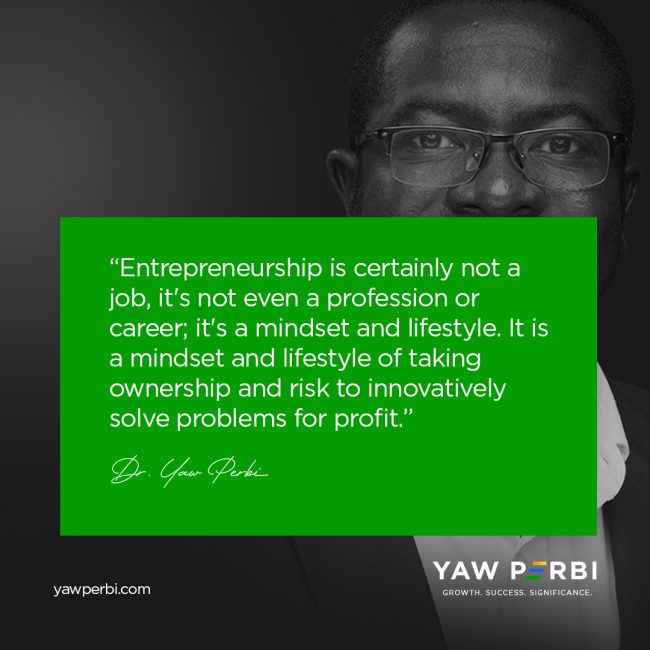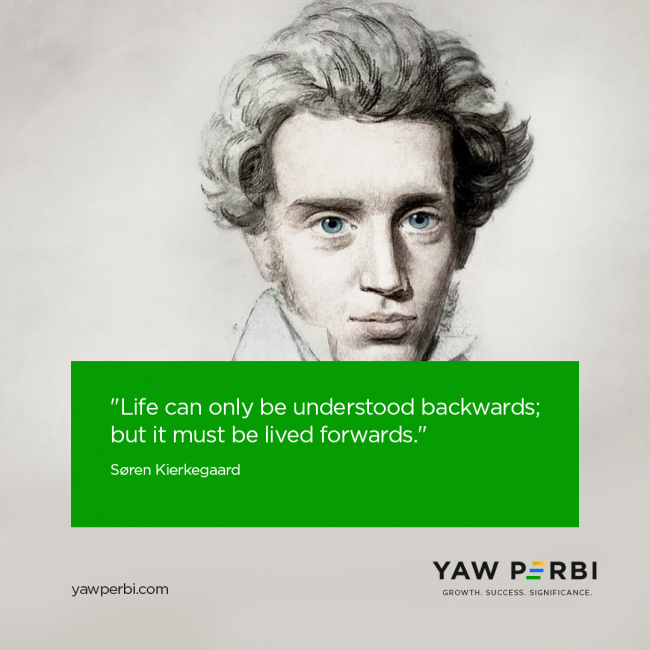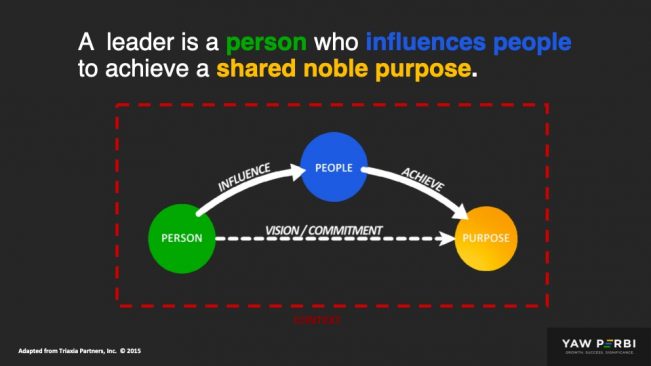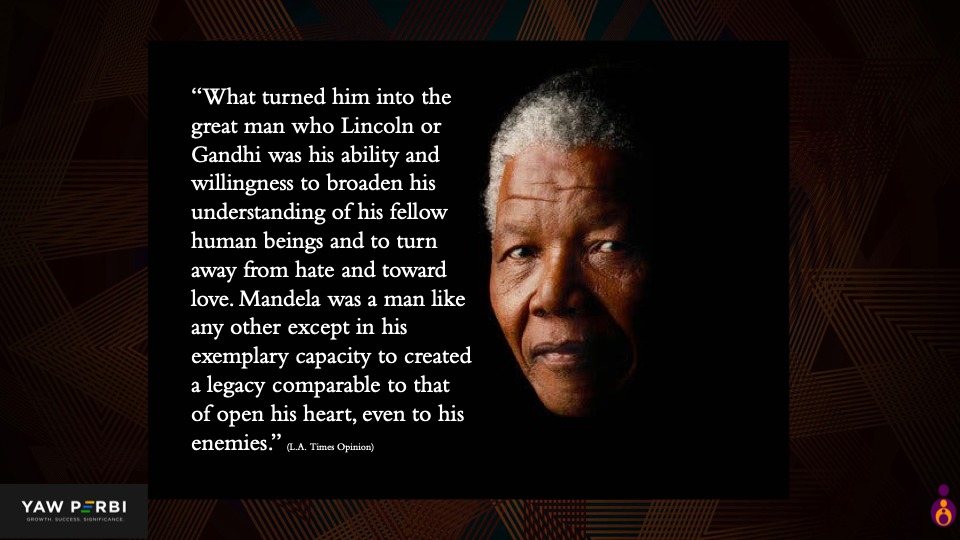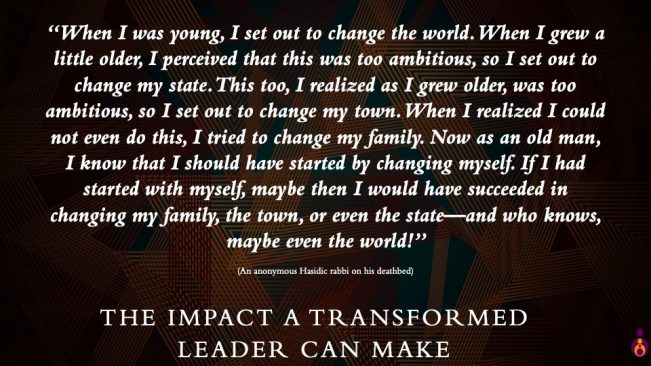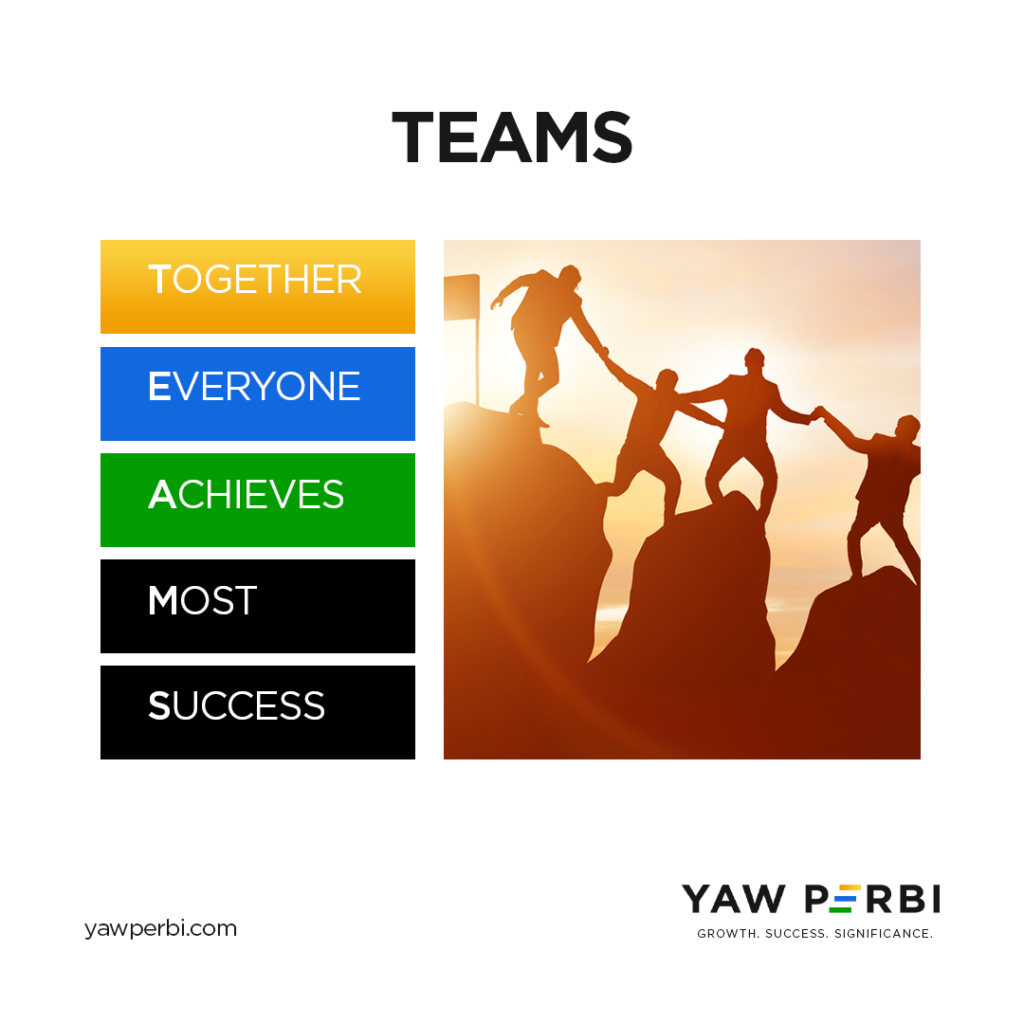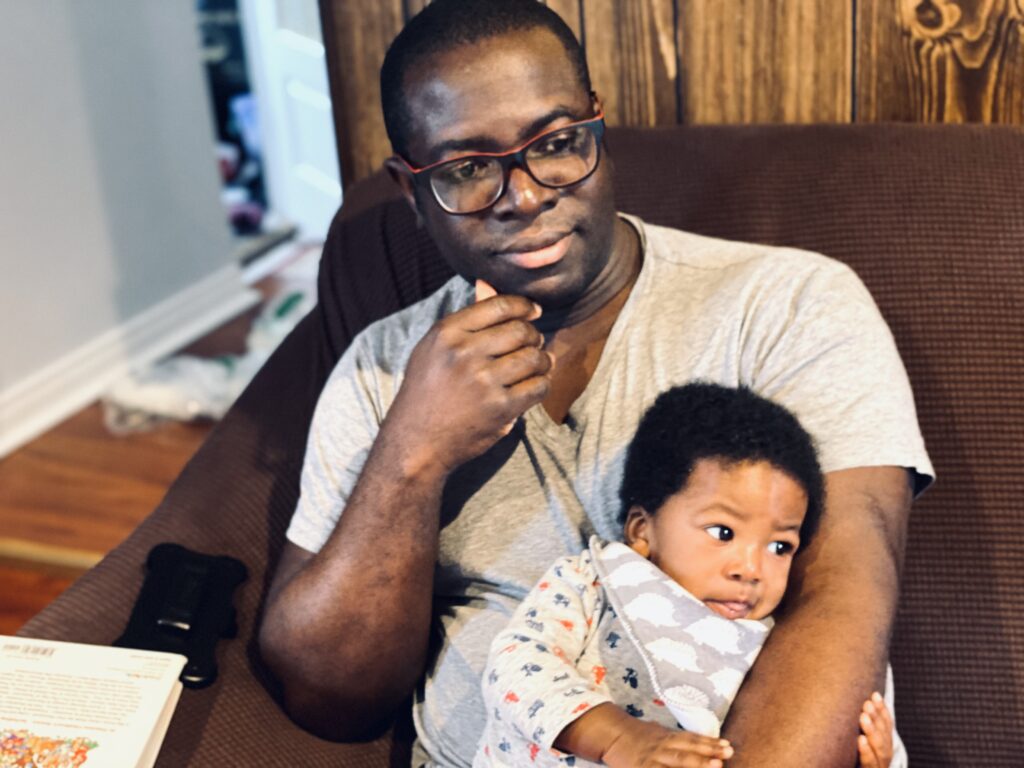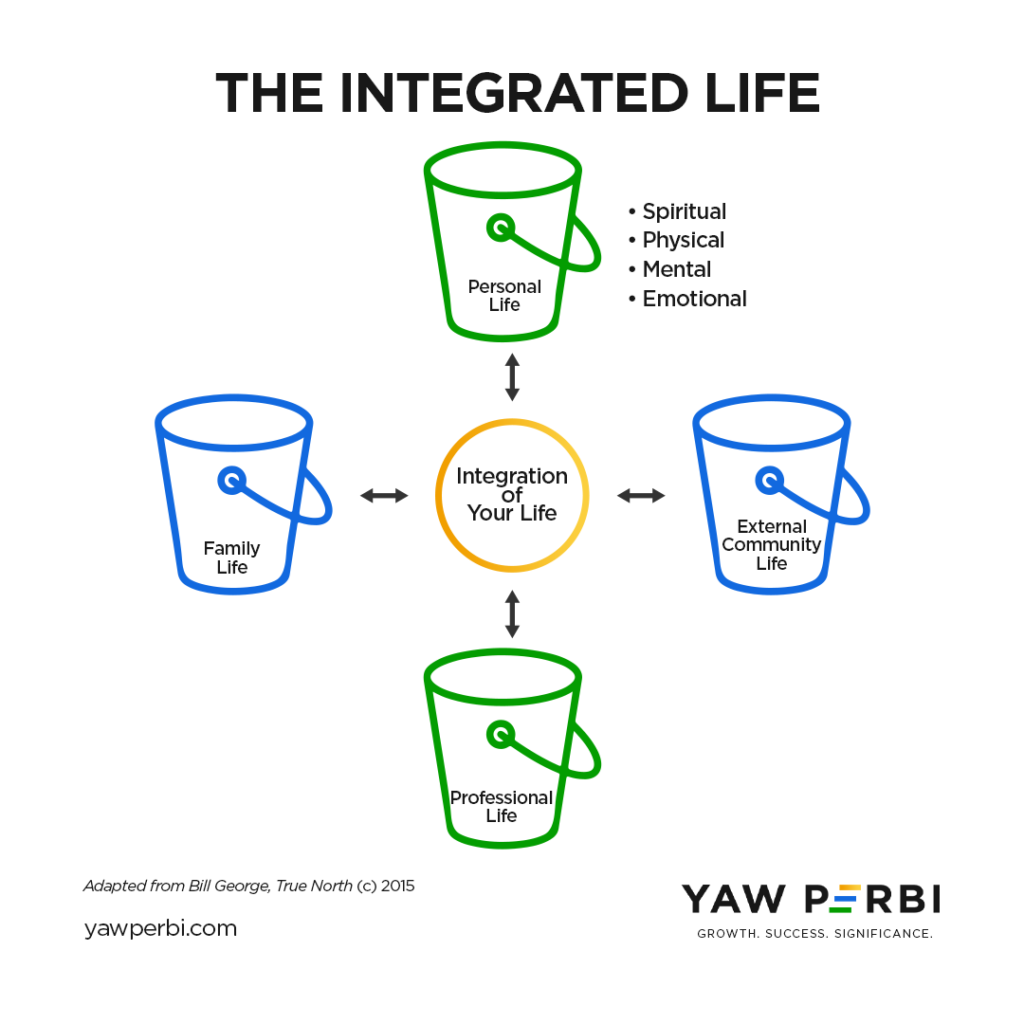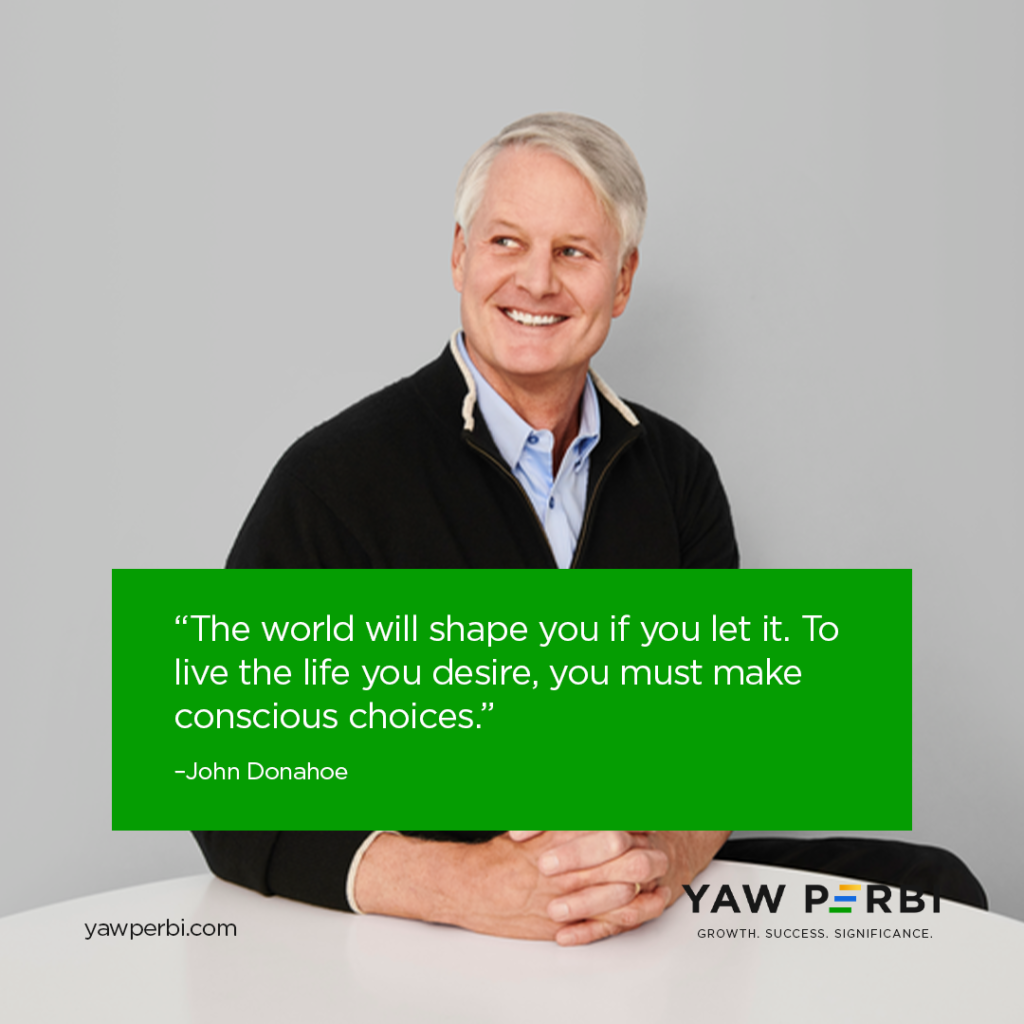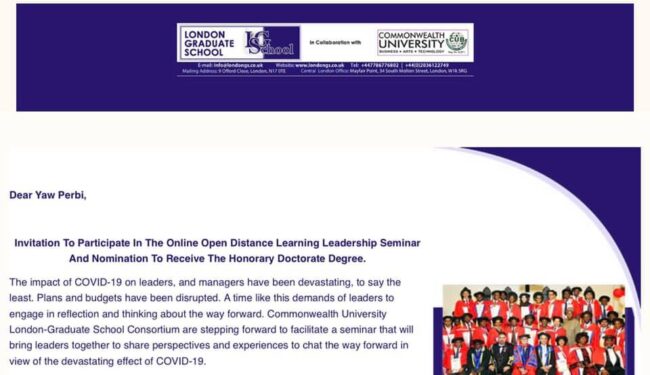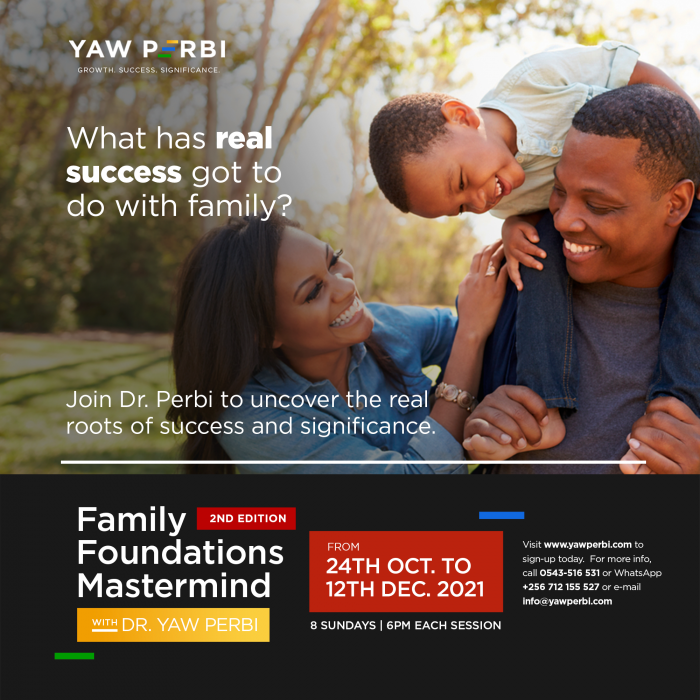
Family Foundations and Success: Will Your Anchor Hold?
We live in perilous times. Don’t you sometimes feel like the world is spinning out of control ? One of the most important things we must cherish and hold on to is family. Every single one of us has a family–no matter how (dys)functional and emotionally or geographically removed. The family is the fundamental unit of human existence. Nothing good happens on Earth if it is broken or destroyed. A society is only as good as the families that constitute it.
It is not only the concept of family that is important but also the actual living out of what family should be. Humans are described as social creatures. We make friends, live in communities, and connect with strangers based on common elements. Social media has recently emerged as a new way for people to connect with childhood peers, friends of friends, and even strangers. Nothing is more central to social life than the concept of family. Our families represent our earliest and, often, most enduring relationships.
Earlier this year, a Family Foundations Mastermind was held, with a sizeable number of couples (and some individuals) participating. All present could see that there are important things everyone should know, be, and do about the family yet no one had done! How can we expect family to be strong and stable if we ignore the fundamental roles of human existence? As a result, a popular request has been made for it to be repeated, even though we had planned this quarter to run a Financial Whizzdom Mastermind, which many were anticipating. We apologize for any inconvenience, but signing up for the upcoming Family Foundations Mastermind would never be a mistake.
With what is going on around us in this LGBTQI+ era, there is an urgent need to apply ancient wisdom and put current family systems theories to the test. The abiding questions in the 19th century hymn Priscilla Owens come to mind:
“Will your anchor hold in the storms of life, when the clouds unfold their wings of strife?When the strong tides lift, and the cables strain, will your anchor drift, or firm remain?”
We encourage everyone to participate in this mastermind as it will be both enjoyable and educational. We will explore:
Why a systematic study of family itself is important
The prime place of family (get ready for paradigm shifts!)
Ancient family wisdom (we’ll apply these)
Current family systems theories (we’ll test some)
Basic tools for emotional connection
Essential communication tools
The forgiveness exercise
Unique emotional needs and how to fulfill them
Mapping out your family genogram
Drawing up a family mission statement
Prioritization: Recognizing the place of work, family, friends, church/community, and other responsibilities that require your attention.
The idea of the integrated life over the notion of balance
And much more!
Note that this is not a masterclass but a mastermind. Inasmuch as there will be some core teaching, more central will be the concepts and tools that are put on the table for everyone to contribute their perspectives and experiences and practically learn together things together that no one could have taught us. Dr. Yaw Perbi is a guide by the side in masterminds rather than a sage on the stage, typical of a masterclass.
WHAT’S SUCCESS GOT TO DO WITH FAMILY?
Everything. As John C. Maxwell poignantly puts it, success is when the people who know you the best (family) love and respect you the most. Join this journey of growth to discover the real roots of success and significance. Family is essential. Whatever we see in society has a direct correlation with family. The family is the fundamental unit of society and humanity. We can discuss all seven sectors of life or spheres of influence, but only family actually produces human beings. Come learn how to be a better family member and how to be/do family better.
We are excited to have you. Register via this link as soon as possible. First come, first guaranteed.
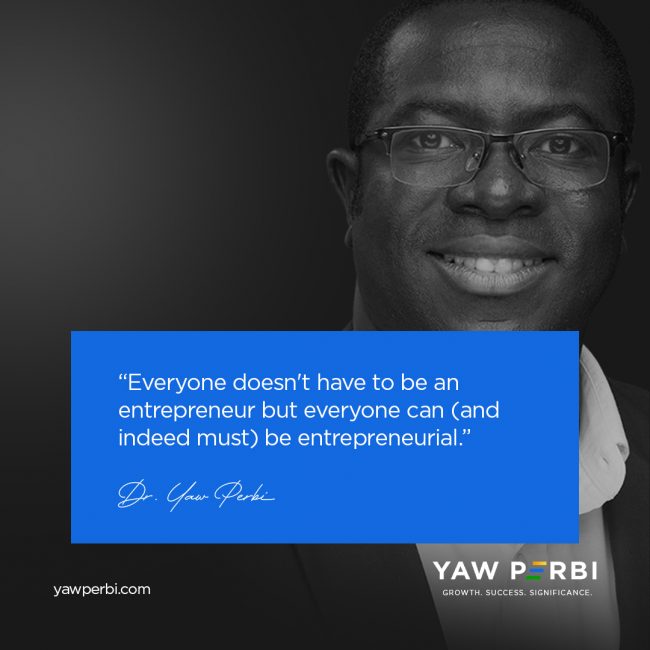
WANTED: Intrapreneurs!

A YP presentation to the two dozen Perbi Cubs staff gathered for orientation and training at a hotel in Accra.
Have you ever come across a ‘WANTED’ notice? Have you ever been on one? People can be wanted for good and bad reasons. Today, I’m here to share a WANTED notice with you on behalf of several business owners I get to coach and on my own behalf as a serial entrepreneur, WANTED: INTRAPRENEURS!
This was my passionate call during the final day of a whole week’s orientation and training of two dozen staff of Perbi Cubs Library Services, an evidence-based, cost-effective, literacy-promoting endeavour co-founded by my wife Anyele Perbi and I. This social enterprise has grown to serve 2,000 children in 200 schools and is set to scale some 10 times in the coming new school season (Deo volente) as a result of an innovative digital online library solution we’re partnering with various leading schools to roll out. The ‘problem’ of Covid-19 presented this entrepreneurial opportunity. I challenged our employees to become intrepreneurs. Here’s why.
WHAT’S IN A NAME?
First of all who is an entrepreneur? An entrepreneur is simply a person who sets up a business or businesses, taking on financial risks in the hope of profit. Investopedia offers an expanded definition of this as follows: “An entrepreneur is an individual who creates a new business, bearing most of the risks and enjoying most of the rewards. The process of setting up a business is known as entrepreneurship. The entrepreneur is commonly seen as an innovator, a source of new ideas, goods, services, and business/or procedures.” My definition is as simple as this: an entrepreneur is a problem-solver for profit.
Entrepreneurship is certainly not a job, it’s not even a profession or career; it’s a mindset and lifestyle. It is a mindset and lifestyle of taking ownership and risk to innovatively solve problems for profit. Hence employees who think and act like entrepreneurs are called intrapreneurs.
Intrapreneurs are employees who behave like Entrepreneurs. They have a work attitude and style that integrates response-ability, risk-taking, ownership, innovation (ROI). I like the acronym ROI because intrapreneurs really provide the best Return on Investment for their employers, business owners and indeed all stakeholders. The first written use of the term ‘intrapreneur’ appeared in a 1978 paper by Gifford and Elizabeth Pinchot entitled Intra-Corporate Entrepreneurship but prior to that the poster child for intrapreneurship had been Art Fry of the 3M company, four years before (I shall summarize his story shortly). The Pinchots’ first book, Intrapreneuring: Why You Don’t Have to Leave the Corporation to Become an Entrepreneur (1985), presented an expansion of the intrapreneurship concept where they defined intrapreneurs as “dreamers who do. Those who take responsibility for creating an innovation of any kind within an organization.”
Here’s a more elaborate definition of Intrapreneurs by Jordan Daykin in Forbes magazine: “A team of competitive, confident individuals who are committed to innovation, passionate about work and producing higher value for their employer [indeed, all stakeholders]. They will need to have an entrepreneurial spirit, be activators of ideas and have a willingness to take calculated risks. In return for their desire to help the growth of the company over financial reward, they will receive support and resources to help make their ideas a reality.”
ART FRY THE INTRAPRENEURSHIP POSTER CHILD
Today, it’s hard to avoid 3M products, especially those sticky notes of theirs. The company is worth $5 billion with a recurring spot on the enviable Fortune 500 list but what most people don’t know is that its success is largely one of the power of intrapreneurship. In 1968, a 3M engineering employee called Art Fry attended a seminar given by another 3M scientist, Spencer Silver, on a unique adhesive the latter had developed. This innovation had an unusual molecular structure that gave it the unique characteristic of being strong enough to cling to objects but weak enough to allow for only a temporary, non-damaging bond. It is reported that the scientific community didn’t take Silver seriously and he himself was still searching for a marketable use of his invention.
As the legend goes, Fry sang in his church choir on nights, and he used slips of paper to mark the pages of his workbook. When the book was opened, however, the makeshift bookmarks often moved around or fell out altogether defeating the whole point. On a Sunday in 1973, it occurred to him that Dr. Silver’s adhesive could be put to use in creating a better bookmark. If it could be coated on paper, Silver’s adhesive would hold a bookmark in place without damaging the page on which it was placed. Being the intrapreneur that he was, the next day, Fry requested a sample of the adhesive and began experimenting with it, coating only one edge of the paper so that the portion extending from a book would not be sticky. Fry experimented with writing notes to his boss, which broadened his original concept into the innovative Post-it Note product.
In 1978, 3M marketed the sticky notes under the name “Press ‘n Peel.” Two years later, after sampling in 11 states across the country, 3M officially released the first Post-it Notes. They were a massive success right away, resulting in over $2 million in sales after only a year on the marketplace.
IF YOU DO GOOD…
The company 3M isn’t the sole beneficiary of Fry’s intrapreneurship. Time and space wouldn’t allow me to list all the accolades and achievements of Art Fry as a result of his intrapreneurship. As the saying goes, “If you do good, you do it for yourself, really.” Things have a way of coming back to us, don’t they? What we sow, we reap. In return for their desire to help the growth of the company over financial reward, not only do entrepreneurs “receive support and resources to help make their ideas a reality” (as Daykin says above and the Fry-3M story shows), they also obtain skills for their own concurrent or future enterprises, they can expect that others would treat them and their businesses the way they treated another’s. Intrapreneurs are singled out for extraordinary opportunities (I’ve done that for several people) and can always come back for referrals and recommendations from their managers/leaders/business owners. Above all, if you do good, you do it not only for yourself but also for your God. Then His kingdom will come more fully on earth as it is in Heaven.
“THIS IS MY FATHER’S WORLD”
The Good Book exhorts all and sundry, “Whatever you do, work at it with all your heart, as working for the Lord, not for human masters.” That is more than stewardship, I think. That is ownership right there. Taking ownership of the work one does not because they are owner per se, but because their Father in Heaven owns all things. “For everything comes from him and exists by his power and is intended for his glory. All glory to him forever! Amen.”
Sadly, I’ve heard people in Ghana who should know better, questioning a diligent and passionate worker taking risk and ownership and being innovative, an intrapreneur, as follows: “Adɛn? Adwuma no ɛyɛ wo papa dea?” To wit, “Why this hard work? Is this enterprise/organization your father’s?” The answer is supposed to be an apparent “no” but what if everyone of us who calls God “Father” responds, “Ampa! ɛyɛ me papa dea!” Meaning, “Yes! Of course! It is my Father’s. This is my Father’s world.”
LET’S DO THIS!
I wish everyone was an entrepreneur like my wife and me since there are enough problems to be solved in our world and profit to be made as a reward. Besides, I encourage people to separate their profession from their business, meaning, the fact that they have some employment or career does not exclude them from owning a side business for multiple streams of income (as long as you’re doing excellently well in your regular job and not robbing Peter to pay Paul). But the reality is that not everyone will be a business owner. Indeed, everyone doesn’t have to be an entrepreneur but everyone can (and must) be entrepreneurial, especially as an intrapreneur.

Life is lived forwards but understood backwards
Life is lived forwards but understood backwards. That sounds very much like one of those witty sayings from my bank of African proverbs but the person I read that from first was the Danish philosopher Søren Kierkegaard. In his own mother tongue “Livet skal forstaas baglaens, men leves forlaens,” translates into “Life can only be understood backwards; but it must be lived forwards.”
In a recent conversation with my brother and friend of nearly two decades, Rev. Albert Ocran, he prophetically said to me without butting an eyelid that when he looks at my entire life it can be distilled into one word: leadership, to which I replied with my head bopping like an agama lizard, “That is true, you are right!” (By the way I have given him the title, “Thought Distiller.” He’s doing a wonderful job distilling the life lessons of several leaders in society for the general public on his Springboard Road Show.) Albert is one of the few who ‘gets’ my life, probably because he is an ardent believer in something he himself calls “convergence.”
I have been accused by some of living a scattered life (“all over the place”) while others have expressed concern I might not make much of a dent in the universe (impact) because of how spread my life has been (and continues to be?). I have been a medical doctor, award-winning speaker, punching preacher, best-selling author, publisher, military officer, U.N. peacekeeper, cross-cultural pastor, serial entrepreneur from media to real estate to education, president & CEO, television presenter, financial advisor, investment consultant, founder of many things, corporate trainer, life and executive coach, inspirational teacher, lived in three countries over the last dozen years and served in 45 … So who are you, what are you? people wonder. Although I owe no one an explanation except the One who gave me life, permit me to share two pivotal paradigms, nay convictions, with you.
(1) META-PERFORMANCE–Milking Your Full Potential
First of all, there is the notion of meta-performance. Many of us never explore or exploit our full potential because we get stuck in being the best at something in comparison with others, rather than constantly exploring the question, “What am I capable of?” There is no reason to be stuck in a hospital because I was trained as a medic when I have the ability to author books as well, something the majority of my med school mates may not have the aptitude for. Shall I therefore not write because other doctors cannot? I resolved when I was but a youth, as entrenched it in my personal mission statement, to “die empty.” To die having utilized and exhausted every gift in me, but now I add, “within my God-given limits.” After all, like you I have only one life to live and have only 24 hours in each day. Besides, with a wife and seven children, family is a blessing which comes with its own limits as well.
Suffice it to say I encourage the youth in particular to spend their first 30-35 years at least, exploring and exploring and exploring until they finally hit oil. Don’t forget the parable of the talents: one was given five, another three, and a third servant, one, each according to their ability. Why should the chap with five compare himself with the person with one and underperform? As has been wisely said, the talents we have are God’s gift to us; what we do with them is our gift back to God. Meta-perform!
(2) CONVERGENCE–Connecting the Dots
But I digress, which is funny because the point I want to make next is about (a word that Albert loves): CONVERGENCE. We all must get to a point in our lives when we can look back and connect the dots, and see that all these seemingly scattered and unrelated aspects of our lives, including the lows and the pains, can all really come together to make one huge statement and result in an integrated life. The reason Kierkegaard’s words speak profoundly to me is that when I reflect on my seeming scatteredness, when I look backwards, I see that the many different-coloured strands have a common thread: leadership. That is why I doff my hat to Albert for being so spot on. I have not been called to be a medical doctor or military officer or media man or investment guru per se but a leader in every sphere I’ve been given talent and opportunity in. Is leadership a career? If it is then, then that’s mine. If it isn’t then I do not have a career.
The late Apple founder Steve Jobs put this Kierkegaard philosophy of looking backwards and Albert Ocran’s love of convergence into a very powerful statement: “Again, you can’t connect the dots looking forward; you can only connect them looking backwards. So you have to trust that the dots will somehow connect in your future. You have to trust in something—your gut, destiny, life, karma, whatever. This approach has never let me down, and it has made all the difference in my life.”
BACK TO THE FUTURE
This issue speaks to a powerful leadership practice we must all have: reflection. Reflection, really, is the rhythm of leadership. There is no understanding without reflection. Unless we lead from a place of pause, we will not be able to distill the lessons in life. Not only will we miss out on ourselves, others and even life itself but also our lives and leadership will be shallow. Take it from a guy who is almost always busy running around and has been described by my nonagenarian mentor in Britain as peripatetic. I’m learning more and more to be in solitude and silence, otherwise there is no understanding of the life lived or the thrill of the act of connecting the dots. I would wish that we all, like Aleksandr Solzhenitsyn, can say after our own backwards reflection, “later the true significance of what happened would inevitably become clear to me, and I would be numb with surprise.”
The fuller philosophy of Kierkegaard is this: “It is really true what philosophy tells us, that life must be understood backwards. But with this, one forgets the second proposition, that it must be lived forwards. A proposition which, the more it is subjected to careful thought, the more it ends up concluding precisely that life at any given moment cannot really ever be fully understood; exactly because there is no single moment where time stops completely in order for me to take position [to do this]: going backwards.” Don’t keep looking only in the rearview mirror, that’s not where you’re going. But surely do look into it momentarily from time to time for the wherewithal to live and lead forwards with meaning. Life is lived forwards but understood backwards.

What #FixTheCountry and #FixYourself Both Got Wrong
Earlier this year, my homeland Ghana was in the news again, trending on social media for all the wrong reasons. Citizens were tired of apparently failed campaign promises and mounting socioeconomic challenges from illegal mining destroying our ecology to pot holes, no, man holes, in our streets. All of these complaints were bundled together in a #FixTheCountry campaign that made a dent in Twittersphere. Some ill-advised government sympathizers then began a #FixYourself counter-tweet, which only added insult to injury. A much more compassionate and smarter response, which might’ve calmed nerves, would’ve been #LetUsFixItTogether but be that as it may, as a student of leadership let me show you how both sides got it wrong in the first place.
LEADER DEFINED
There are officially over 360 definitions of leadership. The simplest yet most profound one that makes the point I seek is this: a leader is a Person who influences People to achieve a shared noble Purpose. Although there are three ‘P’ players in this equation, the tendency for most, and not just Ghanaians, is to focus on the third ‘P’ (Purpose), in this case the country that needs fixing. That makes sense because it is often what pinches and the thing we would’ve been sweet-talked about during the animated political campaigning prior to elections. So the citizenry said #FixThePurpose and what some government functionaries did was to then shift what needed fixing to the second ‘P,’ the people i.e. #FixThePeople.
As I prepared to speak to alumni of the Central Leadership Programme a couple of weeks ago on ‘The Impact a Transformed Leader Can Make‘ it dawned upon me heavily that while both sides of the hashtags might bee sincere, they are both sincerely wrong. The most important ‘P’ that fixes the other two ‘Ps’ is the Person of a leader! We can cry #FixTheCountry all year long and hear a minor counter-chorus of #FixYourself all year round but until the primary hashtag and passionate focus becomes #FixTheLeaders, it’s all a waste of time, energy and a whole lot of other scarce resources!
PRINCIPLES AT WORK
You might not like what I’m saying, or even not believe in it, but the thing with principles is that they are timeless, universal truths that don’t care a hoot what you and I value. As the famous director of the 1956 epic movie The Ten Commandments said, we cannot break commandments, we can only break ourselves against them. Until our leaders are transformed, the people will not be transformed, neither will the situations that need transformation. In other words, until and unless the leaders are fixed, the people will not be fixed and the problems will not be fixed. It doesn’t matter how sincere and passionate we are about the latter two, we would ironically only be breaking ourselves against leadership principles, rather than fixing anything.
In transformational leadership, the following principles hold true:
Principle #1: Transformational Leaders are transformed first, then their community (from family to town/city to district to region to country and continent)
Principle #2: The Person (of a Leader) gets fixed first, then the People, before the Purpose
Principle #3: Only deeply transformed leaders can deeply transform society.
PORTRAITS OF THE POINT
In my talk, I shared examples of the impact transformed leaders have had on society, irrespective of the era, whether 2,000 years ago like Zacchaeus, 200 years ago like William Wilberforce or barely 20 years ago like Nelson Mandela. When Zacchaeus, the short and filthy rich chief tax collector, encountered the rabbi Jesus Christ, he was transformed. That’s what led to his unforced famous declaration: “Look, Lord! Here and now I give half of my possessions to the poor, and if I have cheated anybody out of anything, I will pay back four times the amount.”
What do you suppose was Zacchaeus’ impact as a transformed tax leader (say, as the head of the Ghana Revenue Authority)? If every African politician since 1957 said and did similarly, not only will we hardly have the poor amongst us, our socioeconomic indicators will drastically improve overnight as Swiss banks and vaults are emptied swiftly! That’s the impact a transformed leader (#FixedLeader) can make in transforming a people and a context. This brings to the freedom two more faith-based transformational principles: #4 No one can truly encounter the transformational Jesus and not be transformed and #5 No one can be truly transformed by the transformational Jesus and not transform society.
These principles are again exhibited in the modern story of William Wilberforce and the contemporary biography of Nelson Mandela. You might want to check out the video of the said talk to appreciate how the transformative societal impact of both, also came from the fountain of their personal transformation as leaders. For Mandela, see the quote below that summarizes well his transformation and transformative leadership:
Former South African President Thabo Mbeki makes the point for me about fixing leaders first to get the product in society we want in this video. He challenges incumbent African presidents as follows: for whatever kind of Africa we want, the question is, “what sort of leadership do you produce to get that kind of result?”
It’s easy to be impressed by Wilberforce’s purpose, which he influenced thousands to share in: ““God almighty has set before me two great objects: the abolition of the slave trade and the reformation of manners.” But what you might not know is that his wasn’t always a noble story. Although young and gifted, his biographer Eric Metaxas wondered, “But to what would he rise? For beyond making it to Parliament and succeeding there …he had no dreams. He was ambitious and he was talented, but he was also directionless.” Years later Wilberforce himself remarked, “The first years I was in Parliament I did nothing—nothing to any purpose. My own distinction was my darling object.” What changed everything and began a life-long pursuit of the abolition of the slave trade and emancipation was how all that pre-occupation with himself, his status and ‘success’ began to change in 1784 (at 25) when he started to explore the religious faith of his youth. Again, the transformed Person he became, influenced a People to transform, and together they transformed and reformed the world!
CONCLUSION
Citizens are powerful. “Power to the people,” was the mantra in the revolutionary days of the 1980s in Ghana. I was a only a lad but I still remember. And it is true. But leadership is incredibly important, as everything rises and falls on it. True, citizens (People) can use their thumbs to vote leaders (Persons) in and out of office and press their demands on them. True, citizens can campaign ad nauseam about the plights and dreams (Purpose) that matter. All I’m asking is that if principles are true and cannot be broken, then our strongest and loudest campaign should be #FixTheLeaders. If we do, the people will be fixed (#FixYourself) and so will the country (#FixTheCountry). There’s no other way around this. If we do not go this route, come 100 years from now, those two #FixTheCountry and #FixYourself hashtags will still be trending. We would only have have successfully recycled unfixed leaders of fixed colours every four years while the country itself remains unfixed. Leaders must fix themselves first, then serve and influence the people to be fixed and together, fix the country.
PS.
As someone with an advanced degree in leadership and being a leadership practitioner across various industries and on every continent, I do reckon that this issue is nuanced. It takes an entire ‘leadership ecosystem’ and multi-dimensional, multi-directional processes. Yes, I agree there has to be 360 degree leadership. We can play around with all the possible permutations there are but we fool ourselves without this primary transformed/transformational leader —> transforming people —> transformed society piece. It is akin to what will be referred to in Chemistry as ‘the rate determining step.’ If that (#FixTheLeaders) doesn’t happen and in ample time and measure, we will still be arguing about #FixTheCountry and #FixYourself 100 years hence. We’re in a fix (pun intended).

The Little Cow
The first time I heard the story about the little cow, it was from the lips of a millionaire. Gathered in the conference room of some hotel in mid-town Montrèal, this man who had made his money from the financial services industry was urging us on to let go of our little cows, mainly JOBs (which people in his circle called “Just Over Broke”) and go chasing those dreams that will stretch us, pain us but in the end be most gratifying.
Recently, I decided to search online for the story and finally found it, author unknown. Here goes.
The Little Cow – Unkown Author
A master of Wisdom was traveling through the countryside with his apprentice when they came to a small, disheveled shack on a meagre piece of farmland. “See this poor family,” said the Master, “Go see if they will share with us their food.”
“But we have plenty,” said the apprentice.
The master said, “Do as I say.”
The obedient apprentice went to the home. The good farmer and his wife, surrounded by their seven children, came to the door. Their clothes were dirty and in tatters.
“Fair greetings,” said the apprentice, “My Master and I are sojourners and want for food. I’ve come to see if you have any to share.”
The farmer said, “We have little, but what we have we will share.” He walked away, and then returned with a small piece of cheese and a crust of bread. “I am sorry, but we don’t have much.” The apprentice did not want to take their food but did as he had been instructed. “Thank you. Your sacrifice is great.”
“Life is difficult,” the farmer said, “but we get by. And in spite of our poverty, we do have one great blessing.”
“What blessing is that?” asked the apprentice.
“We have a little cow. She provides us milk and cheese, which we eat or sell in the marketplace. It is not much but she provides enough for us to live on.”
The apprentice went back to his Master with the meagre rations and reported what he had learned about the farmer’s plight. The Master of Wisdom said, “I am pleased to hear of their generosity, but I am greatly sorrowed by their circumstance. Before we leave this place, I have one more task for you.”
“Speak, Master.”
“Return to the shack and bring back their cow.”
The apprentice did not know why, but he knew his Master to be merciful and wise, so he did as he was told. When he returned with the cow, he said to his Master, “I have done as you commanded. Now what is it that you would do with this cow?”
“See yonder cliffs? Take the cow to the highest crest and push her over.”
The apprentice was stunned. “But Master…”
“Do as I say.” The apprentice sorrowfully obeyed. When he had completed his task, the Master and his apprentice went on their way.
Over the next years, the apprentice grew in mercy and wisdom. But every time he thought back on the visit to the poor farmer’s family, he felt a pang of guilt. One day he decided to go back to the farmer and apologize for what he had done. But when he arrived at the farm, the small shack was gone.
Instead there was a large, fenced villa.
“Oh no,” he cried, “The poor family who was here was driven out by my evil deed.” Determined to learn what had become of the family, he went to the villa and pounded on its great door. A servant answered the door.
“I would like to speak to the master of the house,” the apprentice said.
“As you wish,” said the servant. A moment later a smiling, well-dressed man greeted the apprentice.
“How may I serve you?” the wealthy man asked.
“Pardon me, Sir, but could you tell me what has become of the family who once lived on this land but is no more?”
“I do not know what you speak of,” the man replied, “my family has lived on this land for three generations.”
The apprentice looked at him quizzically. “Many years ago I walked through this valley, where I met a farmer and his seven children. But they were very poor and lived in a small shack.”
“Oh,” the man said smiling, “that was my family. But my children have all grown now and have their own estates.”
The apprentice was astonished. “But you are no longer poor. What happened?”
“God works in mysterious ways,” the man said, smiling. “We had this little cow that provided us with the slimmest of necessities, enough to survive but little more. We suffered but expected no more from life. Then, one day, our little cow wandered off and fell over a cliff. We knew that we would be ruined without her, so we did everything we could to survive. Only then did we discover that we had greater power and abilities than we possibly imagined and never would have found as long as we relied on that cow. What a great blessing from Heaven to have lost our little cow.”
COW & COIN CONCLUSION
Everyone of us has a little cow that stands in the way of fulfilling our full potential. So what’s your little cow? Now imagine a little child who remains tight-fisted over a quarter, a 25-cent coin, when you are eager to give them a $100 bill you’re hiding behind you and encouraging them to ‘open up’ and ‘let go’ of the quarter to receive. They aren’t able to receive the $100 because they would rather keep the little that’s surely in hand than open their palm and risk losing the quarter, although they might very well know that what they could gain might be way better.
You probably have heard it said that often the enemy of the best is the good. What is your little coin or little cow. Let it go; kill it!
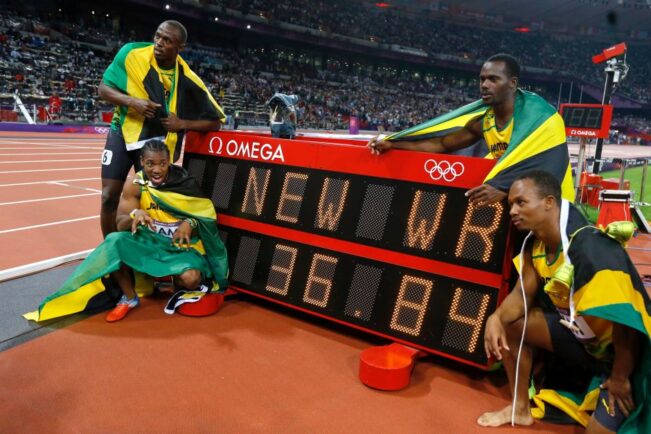
TEAMS | Together Everyone Achieves Most Success
The story is told of an anthropologist who introduced a game to the children of an African tribe. He placed a basket of delicious fruits near a tree trunk and told them: “The first child to reach the tree will get the basket.”
When he gave them the start signal, to his astonishment they were walking together, holding hands, until they all reached the tree. They simply shared the fruits and happily ate them! So baffled, with a furrowed brow he asked them, “Why did you do that when any one of you could get the basket only for yourself?”
They answered with glee, and to his amazement, “Ubuntu!”
“How can one of us be happy if all the rest are miserable?”
“Ubuntu” in their civilization means “I am because we are.” It is Xhosa from the African continent. The venerable Archbishop Desmond Tutu explains: “Africans have a thing called ubuntu. It is about the essence of being human, it is part of the gift that Africa will give the world. It embraces hospitality, caring about others, being willing to go the extra mile for the sake of another. We believe that a person is a person through other persons, that my humanity is caught up, bound up, inextricably, with yours. When I dehumanize you, I inexorably dehumanize myself. The solitary human being is a contradiction in terms. Therefore you seek to work for the common good because your humanity comes into its own in community, in belonging.”
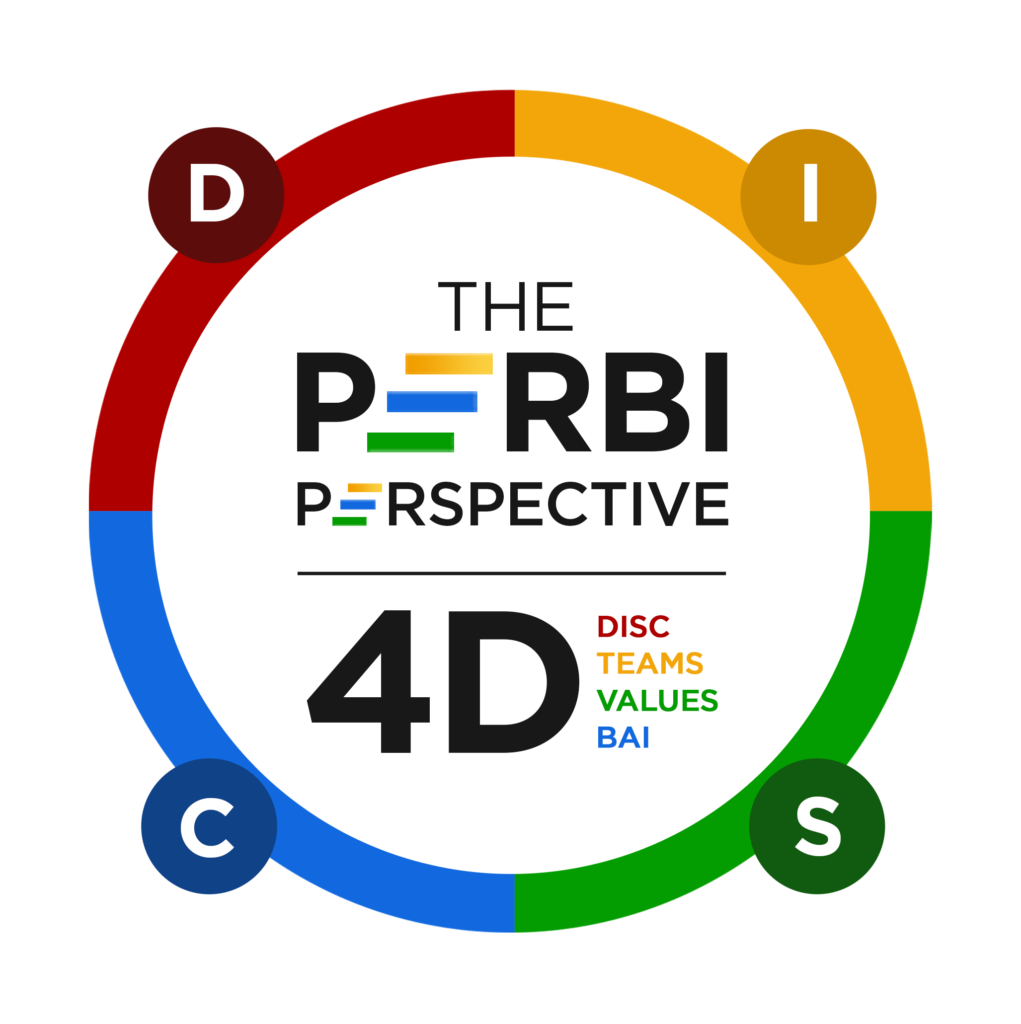
The 4D assessment digs deeper beneath the tip of the iceberg of one’s behaviour as a leader, starting with in one’s unique place in TEAMS
TEAMS THEME LIKE A BROKEN RECORD
Together Everyone Achieves Most Success. The theme of teamwork just won’t go away! To those around me, I must’ve sounded like a broken record over the period. Ah! But broken record will soon take on another important meaning. Read on. It began a couple of weeks ago as I was finishing a write-up for our 4D assessment (image above) at YAW PERBI. The TEAMS portion of the assessment posits that TEAMS should consist of at least one each of a Theorizer, Executor, Analyzer, Manager and Strategist, that idea itself also forming another acronym for TEAMS. No one has all six. Even if they did, they wouldn’t be able to function optimally when all are needed simultaneously. Whatever you don’t have, the Creator has put in someone next to you in your ecosystem. A network is about nextwork, basically a net of next workers.
This became very apparent to me when over these same couple of weeks I happened to be reading the old jewish book of Nehemiah, the guy in diaspora who returned to Jerusalem to lead a rebuilding campaign. The dominant word in the text about the rebuilding is “next.” An array of people, from priests to perfume-makers, male and female, built the next session of the broken walls of the city, some right in front of their house, until walls that had been down for over a century were rebuilt in only fifty-two days! Indeed, teamwork makes the dream work!
Former U.S. President Lyndon Johnson put it another way, “There are no problems we cannot solve together, and very few that we can solve by ourselves.” Going east, the Chinese have a proverb too that says, “Behind an able man there are always other able men.”
BETTER TOGETHER, FOR SURE!
Again over these same couple of weeks, my mother-in-law forwarded a video to me, featuring a passionate speaker who was emphasizing the power of building together. Incidentally, I happened to know the man–pastor Forbes of The Gambia, whose church in Banjul I had the privilege of speaking at about a decade ago. I quickly sent him word that he was trending. And he was. Forbes made a terrific point about how the fastest man in the world remains Usain Bolt of Jamaica, with a 2009 world record he set at 9.58 seconds remaining unbroken by any other human being for a dozen years now. Yet the 4 x 100m relay record by Bolt and three others stands at 36.84s, meaning an average of 9.21 seconds per runner. Get that? That’s a whole 37 seconds better than the best man in the world! That’s the power of team work, of synergy. All of us together, are better than any one of us, even the best of us, any day!
Take the game of soccer too. It doesn’t matter what a great goalkeeper one is, no one wins the game without good strikers who score goals (not to talk of the rest the complimentary forwards and midfielders). In the same way, one may be the best goalscorer in the world but without a strong defence, including goalkeeping, you will be outscored and lose the game. Great leadership assembles a great team of diverse people in gender, ethnicity, age etc. but especially in thinking styles and task orientation.
Every team member has a place where they add the most value. You don’t want to put the best goalscorer as a goalkeeper or vice-versa. You’ve got to know yourself and where you have most value, in order to know where you lack and who to bring on board. Likewise, everyone else on the team should know their niche. In The 17 Indisputable Laws of Teamwork, John Maxwell puts this essential need to have the right people in the right places well on TEAMS as follows:
-
-
-
- The Wrong Person in the Wrong place = Regression
- The Wrong Person in the Right Place = Frustration
- The Right Person in the Wrong Place = Confusion
- The Right Person in the Right Place = Progression
- The Right People in the Right Places = Multiplication
-
-
IN THE END…
All of us together are better than the best of us, any day, every time! Even better than a Usain Bolt! Ubuntu! I am because we are. What is the Theorist without an Executor? What would an Analyzer do without a Manager or Strategist? TEAMS is the way to go. The children of Africa know it. Do we? Together Everyone Achieves Most Success!
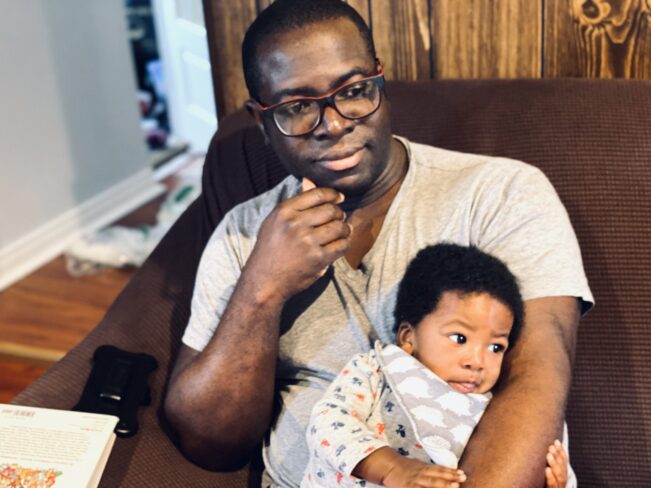
Why I Strive for Work-Life Integration and not Work/Life Balance
Even as a boy, I felt there was something not quite right about hardly knowing my dad’s fellow partners and their families at the ‘big four’ accounting firm he worked at. Of course I knew a couple of the names and faces but that was about it. I felt they could organize some social events and such to intentionally bring their families together but hey, what did I know?
In fact, even now I wouldn’t be able to make out the wife of the senior partner when dad was deputy senior partner. The very kind, burly man’s children currently live barely five hours away from my family in the same country (Canada) but we don’t know each other well enough to even give the other an occasional ring. Oh wait, I got to talk to one of them once, when their dad was seriously ill and had been hospitalized in their town, but that’s been about it.
I think what I longed for, even as a boy, was a bit more of work-life integration, without even knowing that was actually ‘a thing’ or that such a term even existed. A feeble attempt at it has become largely known in the corporate space in recent times as “work/life balance” but what I speak of is more profound than that. How can anyone not see that there is a problem pitting “work” against “life” as if life doesn’t encompass work itself as well as one’s personal life, family and community? And it doesn’t have to be a zero sum game, work or die, inasmuch as there tends to be many tradeoffs.
BUY ONE, GET THREE FREE!
It’s a no brainer that having a bad home situation can adversely affect your professional performance and vice versa. Also, despite how stringent your personal health routines might be, your community relationships are a significant determinant of your mental and physical health, a 75-year study proves. Life is not as separate as we would like (or like to think). Somehow we know this when it comes to how something negative in one aspect of our life can spill over to botch another aspect but what if I told you that being a great dad can make you a better CEO or that the skills you use in your community can be a life-saver in some work project? Yeah, work/life balance isn’t the way to go; work-life integration is. I’ll tell you why.
Author Stewart Friedman concurs: “From years of studying people in many different settings, I have found that the most successful people are those who can harness the passions and powers of the various parts of their lives, bringing them together to achieve what I call “four-way wins — actions that result in life being better in all four domains.” These four domains Stewart speaks of are illustrated in ‘The Integrated Life’ diagram below. He continues, “My research has shown that there are ways for everyone — from the managers of sales teams, to executives in government agencies, to computer engineers, to florists, to coaches — to achieve professional success without always having to sacrifice the things that matter in their personal lives.”
COVID-19 BLESSING IN DISGUISE
One of the gifts of the COVID-19 pandemic has been to not only highlight how important the place we call “home” is, but how it is central to our children’s formal education and our own professional lives. Heck, we’ve even done community, like church, from home! Online. This is perhaps the most physically integrated most people have been in their entire work lives. And those of us who like to keep everything prim and proper with no drama have had a really hard time.
I do a fair bit of social media. I find FaceBook much more integrated in terms of all four aspects of life than say, LinkedIn. Several times, I have seen people literally apologize and “make an excuse” or “make an exception” to post something faith or family-related on LinkedIn. I’ve tried to push those boundaries myself sometimes but it’s a weird, I must say. When I recently shared on LinkedIn that I daily run the daycare at home for the youngest ones of our seven children, I was really honoured to have one of my mentors, Bill George (Harvard business school professor and former CEO of Medtronic), affirm me as follows: “Thank you, Yaw, for being the authentic leader you are.” This must be why: Bill really believes, “For authentic leaders, being true to themselves by being the same person at work that they are at home is a constant test, yet personal fulfillment is their ultimate reward. Doing so will make you a more effective leader in all aspects of life“ (George 2015, 16).
WHERE THE RUBBER HITS THE ROAD
At a just-ended eight-week Family Foundations Mastermind I hosted, the prime place of family was underscored over and over again but by the penultimate session we needed to ‘get real.’ How do we do family well while keeping a demanding job, juggling community roles and trying to stay sane? This is where the rubber hits the road.
As I’ve stated before, integrity comes from the Latin root integritas which means whole, entire, undivided. On the other extreme are those who completely separate their professional life from other aspects of their lives. Then there are those who in the name of work/life balance, hop from one of the four parts to the other, trying to “fulfill all righteousness” and tick every box with as little guilt as possible. What I subscribe to and strive for is integration. Bill is blunt: “To lead an integrated life, you need to bring together the major elements of your personal life and professional life, family and friends so you can be the same person in each environment” (159-160).
We’re striving for the word integrated rather than balance. Subtle difference, apparently, but HUGE. Stewart gets it: “The idea I think to replace work/life balance, which treats these categories as independent, is work/life integration. You’re treating yourself whether you’re at work or at play in basically the same way.”
BIG ROCKS FIRST
All the buckets don’t have the same weight. I believe we ought to carry the more important yet not always more urgent buckets of personal and family first, putting the big rocks in first as Stephen Covey would put it, and all the other things will be added to us as well. Easier said than done, but it must be done nonetheless.
My favourite corporate example of this is Nike CEO John Donahoe (former eBay CEO), when he was a consultant with Bain decades ago with a young family. I was most impressed about how he told his client, ”It is important to me to be doing this. I’m committed to working hard, but I can’t be there before 10am.” This is because he insisted on taking his children to school before heading to the client site. The result? Donahoe was amazed that his clients appreciated the choices he was making. “The client responded positively as he appreciated my commitment and contributions even more” he says. “I didn’t have the courage to think about it that way before. There’s an inclination in business to put on a tough exterior to give the impression that you have everything under control” (162).
Bill George reports that “Donahoe learned that the more he integrated his life and embraced his humanity, the more effective he became as a leader … by showing his team and clients his [priorities and] vulnerabilities, he discovered his teams performed better and his client relationships strengthened.” (162)
This is not to say it’s all easy; but it’s worth it–just like med school or doing an MBA. Hear Donahoe: “The struggle is constant, as the trade-offs and choices don’t get any easier as you get older. My personal and professional lives are not a zero-sum trade-off. I have no doubt today that my children have made me a far more effective leader in the workplace. A strong personal life has made the difference” (160).
To be whole (integritas), we need to integrate our personal , family, community and professional lives, not pit one against the other like ‘work/life balance’ suggests. Real life happens were all four meet and they can enhance each other. Indeed, they should. It isn’t easy. How do I know? I’m still trying. So should you. It’s worth it.
In my next blog, I will share a number of practical examples and ideas of how people have made life-work integration happen, and how my family and I have tried to, also.
References
Friedman, Stewart D. 2014. “What Successful Work and Life Integration Looks Like.” Harvard Business Review. October 07, 2014.
George, Bill. 2015. Discover your True North. Hoboken, NJ: John Wiley & Sons.
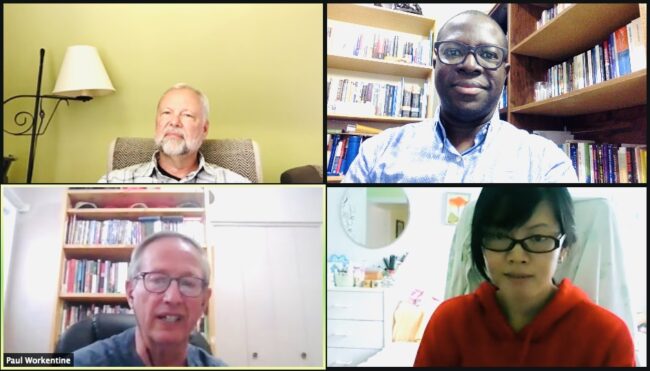
How to Leave the Dance Floor | Two Thoughts on Succession.
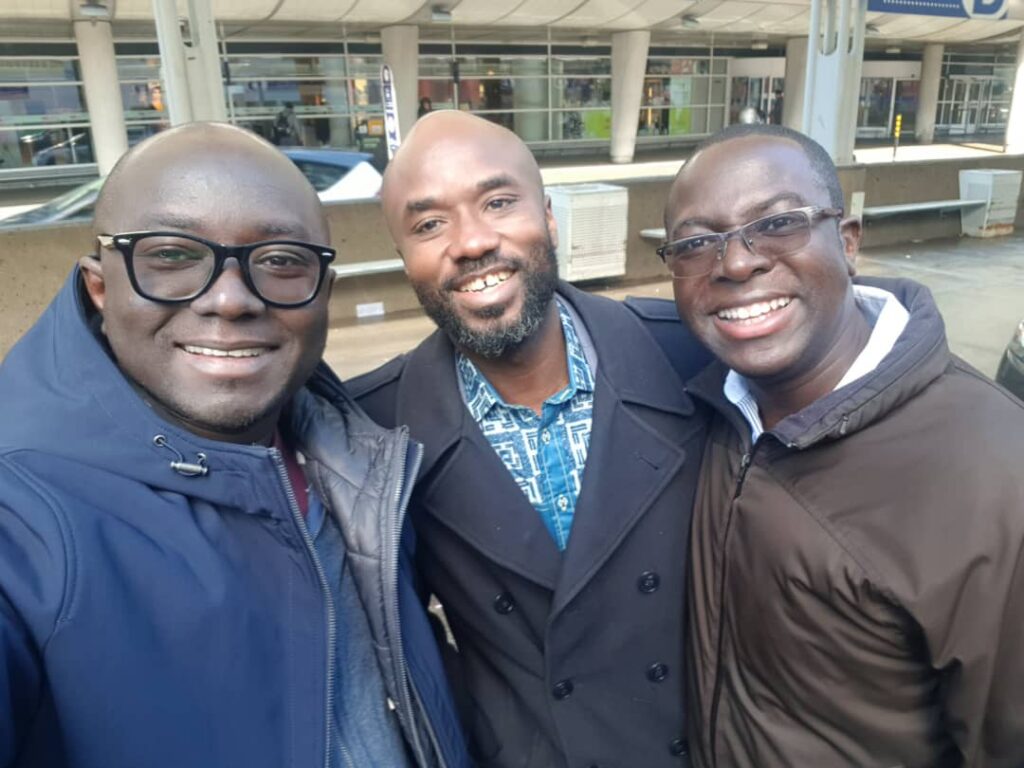
At the Pierre Trudeau international airport in Montreal, Canada, with two leaders, William and Emmanuel, who succeeded me as CEOs of The HuD Group in Ghana and Canada respectively. We had held a strategy meeting just before the COVID-19 pandemic seriously hit the Canada and the U.S..
In my last blog we discussed when to leave the dance floor as an executive leader. Today, let’s talk about how to leave the dance floor. I agree with those who prefer ‘succession management’ to the term ‘succession planning’ because planning, come to think of it, really is only a third of the management cycle which comprises planning, implementation and evaluation.
I have several succession management experiences in my leadership career spanning over two decades. These have been in multiple C-level roles and contexts, even in different countries and continents.
SUCCESSION SUCCESS STORIES
After pioneering The HuD Group in Ghana in 2003 and leading it for five years, I successfully passed it on to the next national CEO and left for Cote d’Ivoire to pioneer the same work of holistic leadership development there while serving with the United Nations peacekeeping operation. The Cote d’Ivoire transition, when it was time to leave after a year, was one of the trickiest. The very week I was to leave, the one person who had hitherto faithfully served alongside me and was the ‘heir apparent’ suddenly and strangely broke my trust in a significant way. The ‘next best’ I eventually handed over to, ended up being truly the best. Timothée led the organization for a decade and has now also successfully passed the baton to an amazing lady, Ann. Timothée is now the CEO of Francophone Africa for the same organization. We have been working together for over a dozen years. We do not only have a mentoring relationship but are really friends, having spent great times together in several African countries as well as in the U.S. and Indonesia. I have done the same kind of succession management in Canada, handing over The HuD Group I pioneered there in 2010 to a very capable young man who at the time was working for Shell in the oil sands of Alberta.
In a different scenario, although I was initially hired to be interim pastor of the English congregation of a Chinese church in Montreal, when it was time to get serious about handing over to a successor after about three years, several people did not want us to go that route. They liked me and had gotten comfortable with the progress we were making in several areas but I knew it was the right thing to do. As a leader, I had figured out that the church needed to find someone who could give their full attention to the work and not my part-time investment, albeit fairly substantial. That too was an interesting succession management process as it involved interviewing candidates from Canada, the US, Taiwan and the Philippines. It’s been about five years since we eventually hired a young trilingual Chinese-Canadian, Rev. Joseph Cherng, and the church has been thriving since he took over over from me. Again, he consults me from time to time and we are good friends, even visiting our home to share fellowship together with our spouses.
As I shared in the previous blog, I have just made my way off the dance floor after an eight-year tenure as president of ISMCanada and still in the midst of succession management even as I write this blog. I like the fact that in their statement to the organization, the board mentioned that I gave them a whole year’s notice of my stepping aside. That is how to do it–give ample time (unless, of course, it is an emergency). A recent meeting at ISMCanada had two former presidents (myself and Paul Workentine, who handed over to me in 2013) and the new president of ISMCanada (Jakob Koch) all in the same Zoom breakout room (picture below). All three of us still have roles in the organization concurrently. A blessed rarity!
Apart from leaving the dance floor when people are still enjoying your dance, there are two other mindsets that have helped me succeed with regards to succession management in the several leadership transitions in my leadership career in multiple roles and contexts First, “leadership success is measured by succession” and then, “always be closing.”
MINDSET #1: LEADERSHIP SUCCESS IS MEASURED BY SUCCESSION
One of the things that has helped me to be largely successful in all the above stories, even amidst challenges, has been a leadership jewel I picked from John Maxwell’s 21 Irrefutable Laws of Leadership about 20 years ago. According to John’s Law of Legacy, a leader’s lasting value is measured by succession. So unlike other leaders, and I’ve seen many such in Africa, who even want their successor to fail so that they look good, I have always viewed by success as a leader by how well my successor does. You don’t want your successor to look bad just so that you look good. That is bad leadership.
In all the above successful succession stories, my pride is in the fact that these subsequent leaders are doing well, even better than I did in me era. If really leadership is about the people we serve and the noble purpose we share, then any true leader would want to measure their success by a successful succession!
MINDSET #2: ALWAYS BE CLOSING
When I was a financial consultant with Investors Group Canada, I had a fascinating Italian gentleman called Carlo in charge of my unit. He was quite the mentor figure, doing some rounds with me and even taking me to his home on the east end of Montreal once. Carlo was a straight-shooter and his large clientele was evidence that he was doing something right. He is the guy who first taught me to ‘motivate and disturb’ in the sales process. But the most important thing he taught me about sales, I find applies to succession management as well. He called it ABC–Always Be Closing. That must’ve been his short version of Stephen Covey’s second habit of successful people: begin with the end in mind.
To Carlo, what was the point of all the prospecting, phone calling, presentation preparation, sales conversations etc. if it all these activities in the sales process don’t end up in a sale? But in order to close the sale in the end, one has to have that mindset and talk and behave as a closer right from the beginning of the conversation–even before the beginning–and throughout the conversation. ABC–Always Be Closing.
When it comes to succession management, I feel the same way. Always Be Closing. Right from taking a position or role, one needs to begin with the end in mind and start succession management. Always Be Closing. What if the day after you become VP or CEO you’re hit by a bus? What happens to your organization? Even barring any such tragedy, the reality is, every leader, no matter how good and gifted, will have to leave one day. No one and nothing lasts forever. From the very day I took on the CEO role at ISMCanada, I identified a possible successor and hinted him. Always be closing.
CONCLUSION
So succession management should be as basic a mindset and requirement as ABC for every would-be-successful leader. Beginning with the end in mind, Always Be Closing. And if one truly believes their leadership success is measured by successful succession, it will make all the difference in how they leave the dance floor. Leadership success is good, but significance because succession was successful, is even better!
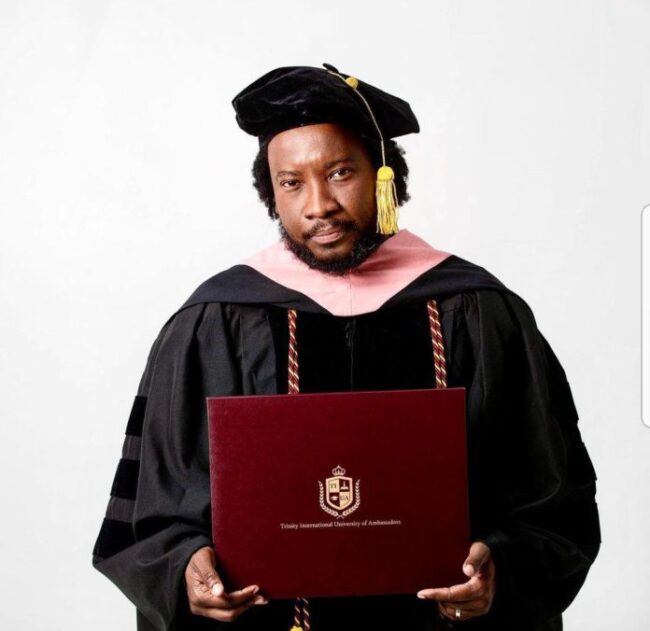
Nothing to Prove, Nothing to Hide, Nothing to Lose
Recently I received an email (partly screenshot above) announcing my nomination to receive an honorary doctorate degree. It is is possible that I would have felt more flattered and been more tempted to go after this fake degree from these fictitious institutions had I not already been a “Dr.” (medical). Coming from a family in which my grandfather was an emeritus professor and where my mother and father-in-law are PhDs in history and economics respectively, these titles don’t exactly faze us. Yet those who offer them know they are toying with very powerful human emotions, motivations and identity issues at the core of our being and have made a good business of it. As my best friend said when I forwarded the said email to him, “this has nothing to do with you; it has everything to do with business.”
Some however, including many Christian leaders, have taken the bait and gotten decorated with very dubious degrees and titles. Recently, there was a huge brouhaha over a popular Ghanaian musician based in London who was alleged to have amassed three degrees, including a PhD, within four months! Perhaps if he had even shut up, none of this would’ve become an issue of investigation and castigation setting social media abuzz but he was flaunting it and ‘praising God’ for the fake feat. The desire to flaunt it itself reveals the very identity and emotional challenges he might have that perhaps led to him to go for those inauthentic accolades in the first place.

Popular gospel singer, Sonnie Badu, has now supposedly earned the title ‘Dr’ after bagging a doctorate in Musicology and being awarded two more degrees.
The above picture of Sonnie, whose giftedness is unquestionable but his academic credentials are, was uploaded by himself on social media touting his feat. I have met Sonnie. He is a fine young man and anointed. But I can also tell you he is far from perfect; just like you and me. Speaking of Sonnie and musicology, incidentally, my grandfather was a celebrated ethnomusicologist. His work earned him many accolades including several honorary doctorates but he never used the title “Dr.” because although he had done enough original research work to deserve ten doctorates he never really formally pursued a PhD per se. Interestingly, he shot straight from ‘mister’ to ‘professor’ and was ’emeritus professor’ for the last three decades or so of his life.
This degree brouhaha touches on at least three issues: identity, purpose and authenticity.
IDENTITY
There was once a programme organized by a friend of mine. The MC got on stage and introduced a certain pastor to come up and offer a prayer. He inadvertently introduced him, with no malice, as Mr. XYZ. XYZ comes up, grabs the mic and makes a correction, “I’m not Mister, I’m Pastor.” That wasn’t all; it gets worse. Later he clears his throat and amends his correction saying something like, “In fact, I’m not Pastor, I am Reverend.” Ahem. Wow! What a shock, what a shame.
But lest I come across as holier than thou, remember I told you that the people offering fake degrees know exactly what they are massaging in us: the ego. I can tell you that as a medical doctor myself there are many times when people address me in speech or in writing as ‘Mr.’ and I have a natural gut reaction to get offended, said in my head something like “do you know who you’re talking to?” and yearned to correct them. There’s a part of me that even justifies it thus: “mehn, but you earned it.” That, my friend, is not the authentic self.
We need not, and indeed should not, root our identity in external things like what we wear, how much we earn, what degrees or title(s) we have acquired. Anything that man can give you, man can take away. Let’s not root our identity in any such thing. And you would think that supposed men and women of God would know better and root their identity in nothing less than Christ himself.
PURPOSE
You may have ‘more degrees than a thermometer’ and still not accomplish your God-given purpose. There are some without degrees at all and yet have made much more impact in the world than those with many letters behind their names. Your purpose in life determines the vehicles and tools you need to use. It’s strange to make the acquisition of vehicles and tools our primary objective when one hasn’t first sat down to evaluate if that is what they need to get done the job they came on earth to accomplish. It’s about dreams, not diplomas and degrees.
Did you read about the recent brouhaha over the apparent insistence of Jill Biden, wife of the current U.S. president, to be called “Dr” ? It’s really been going on for at least a decade now: “Hi, I’m Jill. Jill Biden. But please, call me Dr. Biden.” The December 2020 op-ed by Joseph Epstein in the Wall Street Journal implored Jill Biden to “think about dropping the honorific, which feels fraudulent, even comic.” Personally, I think the essence of what Epstein was trying to say became lost in what became an embroilment in sexism. The real question should be: does being ‘Dr.’ make Jill a better educator (that she’s been for decades) or not? Everything else is secondary; even tertiary.
AUTHENTICITY
This degree saga leaves a lot to be desired when it comes to authentic leadership. It speaks to the core of authenticity. Authentic leaders have:
- nothing to prove–a matter of humility (not try to project self worth)
- nothing to hide–a question of integrity (no playing of games but totally transparent)
- nothing to lose–a matter of simplicity (not strive for social image or popularity).
As you might have noticed, humility, integrity and simplicity as an acronym spell HIS. This is particularly instructive to Christian leaders. Those of us at the Third Lausanne Congress on world Evangelization in Cape Town in 2010 were passionately exhorted by theologian Chris Wright to be God’s saints, Christ’s people, HIS people of humility, integrity and simplicity.
NOT SO WITH YOU
Again, especially for Christian leaders, the primary power base of an authentic (wo)man of God is spiritual power—not positional or personal power. Others may go that route but Jesus was very clear to his followers who would be leaders: “not so with you.” In May 2020, I wrote quite extensively on that here. We need to lead different. This issue just won’t go away until Christians really chose to be H.I.S. people.
CONCLUSION
In light of the recent brouhaha about fake degrees, Friends, BE WARNED. Don’t allow your ego to be stroked and stoked, making your false self acquiesce to receiving fake degrees from fictitious institutions. If you want a degree, go to school and study for one! In any case, one doesn’t necessarily need a degree to succeed in life! Hopefully your going for a diploma or degree would only be because you have observed It will a good vehicle or tool towards your dream. Again, the thing is: You can have ‘more degrees than a thermometer’ and still not fulfill your God-given purpose in life.
I have a mentor who likes to say, “the thing about titles is that if you’re good you don’t need them; if you’re not they won’t help you.” Heaven help us!

Family Foundations No One Lays Yet Everyone Needs
One of the most stupid things I’ve ever done is to travel 10 whole years into marriage before ever seeking formal post-marital counselling. After the several pre-marital sessions lasting many months in 2006, Anyele and I went in the power of that for a decade until we felt we needed further formal, external help. Why on earth did we do that?
Come to think of it, every 5,000 km or so we were changing the oil in our car and getting it serviced yet not so with our marriage. Doesn’t every marriage need regular marriage maintenance? Why wait till we’re sick before we see a doctor when we can at least do annual check-ups? In fact, I would say we came from a culture where seeing a counsellor connoted there was a pathology; and not so much a maintenance thing.
Friends, I’ve had several conversions since August 12, 2006 that have better aligned and further fortified what I thought were already ‘excellent foundations.’ Sometimes there’ve even been foundational cracks I’ve had to fix (and God knows I’m not done). For time to time I’ve come across new information that has caused me to repent, have a change of mind, and realign our foundations to keep this family building strong and lasting.
EXAMPLES OF FAMILY FOUNDATIONS TO REVISIT
Feel free to say “shame on you Yaw” but I had never heard of a family genogram until barely five years ago! How could such an important tool and exercise not have been part of our foundations when we set out a decade-and-a-half ago? And if you’re asking “what the heck is that?”, then trust me, you don’t even know you need one until you eventually discover it. Afterwards you would wonder how in the world your family had been surviving without one. I say ‘surviving’ because you will then notice that what you thought was ‘thriving’ wasn’t quite so.
Then there are basic tools for connecting with spouse and children on a deep emotional level we only received in the last five years. We learnt the 10/10 from the Pellmans and Temperature Reading from the Scazzeros. “Love your wife,” yes I want to. “Respect your husband,” yes she wants to. But how? The Kraemers also gave us tools for this.
And all this is for a good-looking couple who had a pretty solid family heritage, coming from a few generations of good Christian homes, being smart, leaders of our church youth fellowship who had lived virtuously and gotten married as virgins. We even themed our wedding “a celebration of purpose, passion and purity.” Alas! We who ‘had it all’ have realized there are family foundations everyone needs yet almost no one lays. The very marriage mentors who have been blessing us with these paradigms, praxes and practical tools are passionate about their ministry of marriage mentorship today precisely because they themselves didn’t have these when they were our age!
Family is a BIG deal. It is the basic unit of society, just like the cell is for all biological life and the atom is for all matter. Yet the thing about family foundations is this: just like finances, very little about how to make it work well is taught in school about it. If one isn’t fortunate to have a spiritual community that provides quality family life information and formation, you’re in a hard place. There are many divorces that are preventable, if the foundations could be reconfigured. There are some we’ve been able to help save by God’s grace; and others… well… too bad, too late.
THE MOST IMPORTANT PART
Few will argue against the assertion that the most important part of a building, or anything else that is built for that matter, say a marriage, is its foundation. A ton of things have been said about foundations. Gordon B. Hinckley asserts, “You can’t build a great building on a weak foundation. You must have a solid foundation if you’re going to have a strong superstructure.” Adding his voice, David Allan Coe says, “It is not the beauty of a building you should look at; its the construction of the foundation that will stand the test of time.” The greatest teacher of all time, Jesus Christ, classifies life builders into two categories, wise and foolish, purely based on thee foundations they lay: the foolish build on sand, the wise build on rock.
My beloved mentor Peter Scazzero talks about foundations a lot in the Emotionally Healthy Leadership paradigms he teaches. And no wonder, since like the typical New Yorker he is, Pete is ever so familiar with the skycraping towers of Manhattan. This is how he explains the importance of digging deep foundations if we are to build life’s tall towers of significance:
Manhattan consists almost entirely of bare granite, a very hard and strong type of rock. To carry the weight of a 75 or 100 story skyscraper, foundations known as “piles” are used. These are concrete or steel columns hammered into the ground with a massive crane until they penetrate solid rock.
Some pilings go twenty-five stories under the ground. The heavy weight of the skyscraper is then distributed through each of the deep “piles” in the ground below. Together they are capable of supporting the structure’s enormous weight.
If the pilings are drilled in poorly, cracks eventually appear in the structure. Entire buildings may lean. Then they must be torn down or lifted completely so the piles can be reset – a costly and time-consuming process.
FAMILY FOUNDATIONS MASTERMIND
As you might be aware from a previous blog, “a mastermind group (often shortened to just ‘masterminds’) is a peer-to-peer mentoring group used to help members learn together, solve problems, birth new ideas and gain clarity with input and advice from the other group members.” For eight weekly sessions, from April 4 to May 30, I shall be walking along with a dozen leaders who want to re-examine their family foundations and receive new paradigms, praxes and practical tools to finally fix faulty family foundations. Inputs will include several book chapters, videos, articles, practical exercises, discussions and debates. Two special features and benefits will be FREE membership of an online chest of over 20,000 resources and a FREE DISC Personality assessment with a 37-age customized report!
You can be sure that “mastermind groups are great in holding each other accountable for the goals and outcomes each member comes up with themselves” (see here). Outcomes and outputs of this particular Family Foundations Mastermind are as follows:
- Paradigm Shift on the Prime Place of Family
- Ancient Wisdom Applied
- Current Family Systems Theories Tested
- Practical Relationship Tools (for emotional connection, communication, forgiveness)
- Family Genogram
- Behavioural Assessment
- Emotional Needs List & Action Points
- Family Mission Statement
- Hierarchy of Priorities Configuration
- Integrated Life Exploration & Commitment
Register here and let’s go back to basics. Let’s finally fix faulty family foundations that everyone needs to but hardly anyone does.

